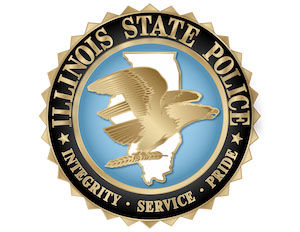Dangerously cold weather has settled across the Midwest this week. ‘Read more’ for tips from Alliant Energy to stay safe and warm & from Iowa American Water to prevent frozen water pipes.
• Wear layers of lightweight clothing to stay warm. Gloves and a hat will help maintain body heat.
• Check on neighbors, relatives and others to insure they are OK
• Don’t forget your pets – bring them indoors. If they can’t come inside, make sure they have enough shelter to keep them warm and that they can get to unfrozen water.
• Protect your pipes – run water, even at a trickle, and keep the thermostat up to help prevent your pipes from freezing. Keep the garage doors closed if there are water lines in the garage.
• If you are using a space heater, place it on a level, hard surface and keep anything flammable—clothing, bedding, curtains, rugs—at least three feet away. Never use a stove or oven to heat your home.
• Avoid using a conventional fireplace. Traditional fireplaces are an energy loser because they pull heated air out of the house and release it up the chimney. When not in use, keep the damper closed. Make sure there are no smoldering embers before closing the damper.
• Use generators correctly – never operate a generator inside the home, including in the basement or garage. If air isn’t circulating, deadly carbon monoxide fumes can quickly build up.
• NEVER attempt to hook up a portable generator to your home’s wiring.
Check your emergency safety kit
Keep an emergency kit handy and make sure everyone in the family knows where it’s located. At a minimum, keep these items in your kit at all times:
• Battery-operated or winding flashlight and radio
• Extra batteries
• First aid kit and manual
• Small fire extinguisher
• Blankets, extra clothes and boots
—
With the bitterly cold temperatures and a forecast that is predicting temperatures will drop even lower, Iowa American Water reminds customers to take a few minutes to safeguard their plumbing systems to prevent water damage from frozen and burst pipes and water meters in their homes. Acting now can prevent costly plumbing repairs and frozen water meter replacement fees that can cause headaches and unnecessary expense for homeowners.
When temperatures are consistently at or below freezing:
• If you have pipes that are vulnerable to freezing, allow a small trickle of water to run overnight to keep pipes from freezing. The cost of the extra water is low compared to the cost to repair a broken pipe. Discolored water or a water “slowdown” at the tap could indicate a freezing problem.
• Open cabinet doors to expose pipes to warmer room temperatures to help keep them from freezing.
If your pipes freeze:
• Shut off the water immediately. Don’t attempt to thaw frozen pipes unless the water is shut off.
• Freezing can often cause unseen cracks in pipes or joints.
• Apply heat to the frozen pipe by warming the air around it, or by applying heat directly to a pipe. You can use a hair dryer, space heater or hot water. Be sure not to leave space heaters unattended, and avoid the use of kerosene heaters or open flames.
• Once the pipes have thawed, turn the water back on slowly and check for cracks and leaks.
When you are away:
• Shut off the main valve that controls all the water for your home.
• Have a friend, relative or neighbor regularly check your property to ensure that the heat is working and the pipes have not frozen.
• Set the thermostat at 55 degrees if you’re going out of town. Although you may be able to get away with a lower temperature, this setting is considered to be safe for pipes.
• Consider wrapping your water heater in an insulation blanket. While not really at danger for freezing, this can lower your heating bills.
• Also, a freeze alarm can be purchased for less than $100 and will call a user-selected phone number if the inside temperature drops below 45 degrees.
It is important to make sure everyone in your home knows where the main water shut-off valve is and how to turn it off and on. If a pipe freezes or bursts, shutting the water off immediately may lessen the amount of damage and cost of repairs.
A frozen water meter can also lead to expensive home plumbing repairs and meter replacement charges



















